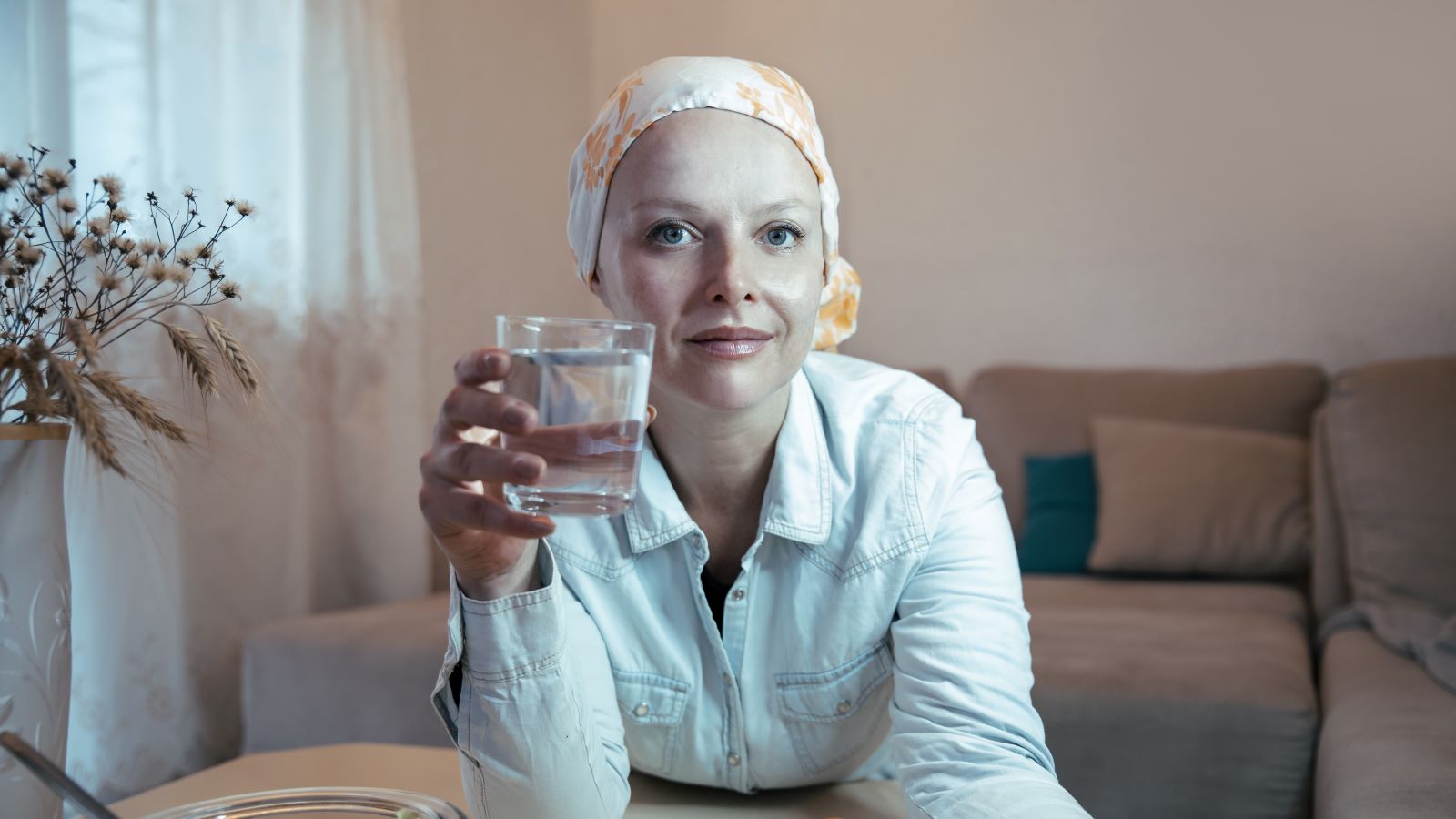If you (or a loved one) are part of the 80% of cancer patients that experience nausea and vomiting during chemotherapy (chemo), we know it takes a real toll.
Chemo can irritate the stomach and intestines, which can make you feel sick. Certain parts of your brain also control vomiting, and chemo can rock this balance and make you throw up.
“While we understand these facts well, we’re still figuring out exactly why chemo makes people feel nauseous,” says Deb Walker, APRN, a nurse practitioner with Hartford HealthCare Cancer Institute Survivorship Program. “It’s a bit tricky because everyone experiences nausea differently, and things like stress or anxiety about chemo can make it worse.”
Even if you can’t cure chemo nausea, here are five ways to help you get through treatment a little easier.
1. Master your meal timing
Even if eating is hard, your body needs proper fuel during treatment.
Walker suggests a few tips to help keep nausea at bay:
- Avoid skipping meals or snacks since an empty stomach can make you feel worse.
- Have smaller, more frequent meals in the day so your stomach doesn’t get too full.
- To alleviate morning nausea, consider placing a small snack such as crackers or applesauce at your bedside to eat before getting up in the morning.
“Consume a small meal or snack before chemo treatment days,” adds Walker.
> Related: 6 Foods to Eat When You’re Nauseous
2. Eat the right foods
Your grocery list can impact your comfort during chemo.
“Avoid spicy, fried, greasy and strongly aromatic foods that can trigger nausea,” explains Walker. “Instead, look for bland and easily digestible options like rice, crackers and toast.”
Here are other essential food tips to follow:
- Choose cold or room-temperature food to reduce its smell and taste (but avoid cold foods if your medical team advises against them for specific chemo drugs like oxaliplatin).
- Consume canned or fresh fruits and vegetables as tolerated.
- Consider meal replacement shakes in consultation with your medical team.
“Don’t forget to incorporate low-fat protein sources into your diet,” Walker adds. “Non-fat yogurt, cottage cheese, well-cooked eggs, and boiled or baked poultry are all great options.”
3. Stay hydrated
Water can go a long way in helping with chemo side effects.
“Hydration plays a crucial role in flushing out toxins and chemo byproducts from the body and helps alleviate treatment side effects like dehydration, nausea and vomiting,” explains Walker. “Since dehydration and constipation can exacerbate nausea, you want to get your fluids in.”
The general guideline for healthy adults is to consume half their weight in ounces of fluid daily.
“However, cancer patients should consult their medical team, including an oncology nutritionist, to determine specific hydration requirements based on age, gender, weight and treatment plan,” adds Walker.
While water is best, she offers other hydration sources:
- Clear, sweet liquids (excluding orange or grapefruit juice, which may irritate your stomach).
- Caffeine-free and non-carbonated soft drinks like sports drinks and iced tea.
- Flat carbonated beverages (e.g., ginger ale) may help settle an upset stomach.
- Popsicles (unless advised otherwise for specific chemo drugs like oxaliplatin).
- Prune juice and hot drinks may aid bowel movements if you’re constipated.
- Moist foods like soup, yogurt, sherbet and fruit-flavored gelatin can also help.
> Want more health news? Text StartHere to 85209 to sign up for text alerts
4. Consider herbal remedies (but never to replace medication)
“While some natural remedies such as ginger and peppermint may aid in preventing and treating chemo-induced nausea and vomiting, research on the efficacy of non-drug and alternative drug strategies in this regard is limited,” says Walker.
There may also be interactions between herbal medicines/supplements and cancer treatment.
“Unlike medications, supplements aren’t required to undergo testing to demonstrate their safety or effectiveness,” says Walker. “Consult your doctor before adding anything to your treatment regimen.”
5. Put self-care into your treatment
A few lifestyle changes can help reduce your nausea during chemo, says Walker, including:
- Getting enough sleep, ideally 8 hours per night.
- Maintaining a nutritious diet.
- Abstaining from tobacco and alcohol.
- Addressing your mental wellbeing.
- Incorporating relaxation techniques into your routine, such as acupressure, acupuncture, Progressive Muscle Relaxation (PMR) and deep breathing exercises.
An don’t forget to stay moving!
“Patients who incorporate exercise into their routine during chemo tend to experience less nausea than those who don’t exercise,” says Walker.
Lean on your oncology team for support
It’s important to stay in communication with your doctor and oncology team during treatment.
“Keep your healthcare provider in the loop on your symptoms,” says Walker. “Let them know about any experiences of nausea.”
Your doctor can advise you on what signs need medical attention through a scheduled appointment or the emergency department.
“It’s essential to follow the medication treatment plan outlined by your oncology team,” says Walker. “They are your best resource. Lean on them to help you effectively manage your symptoms as you go through this.”



